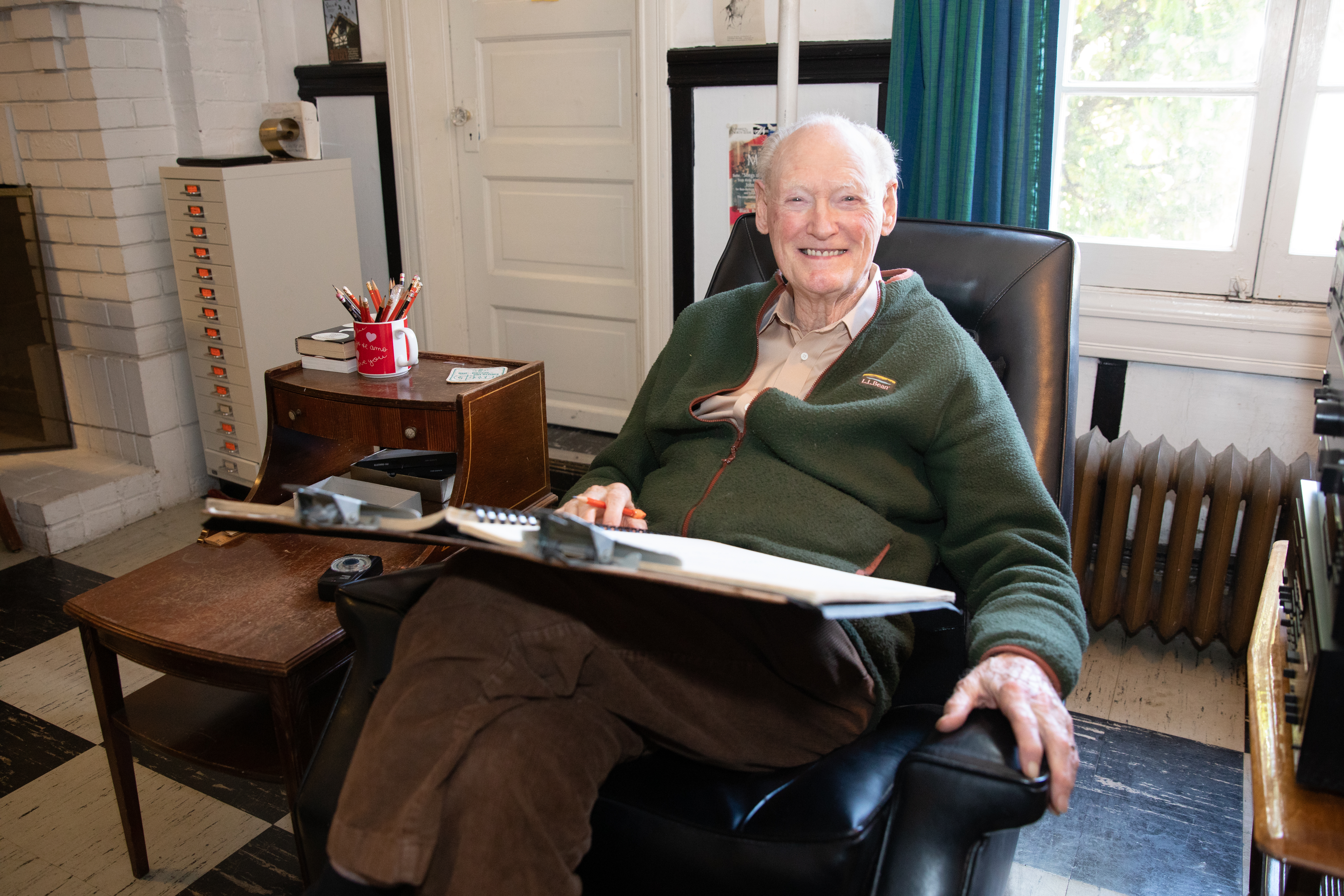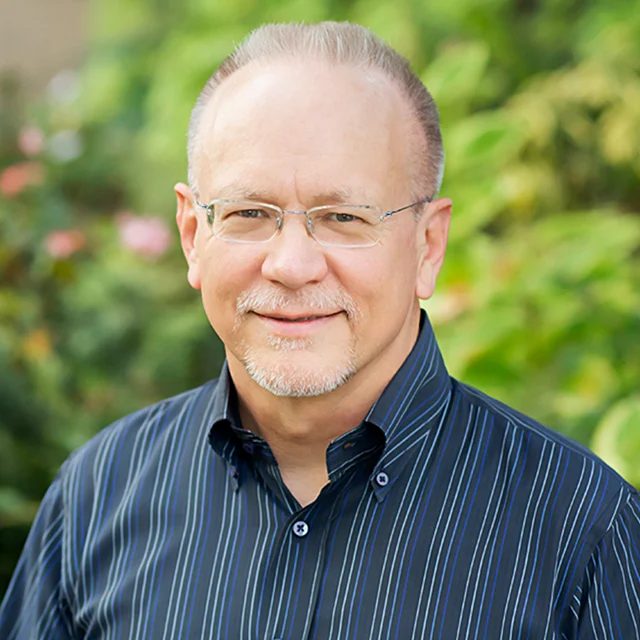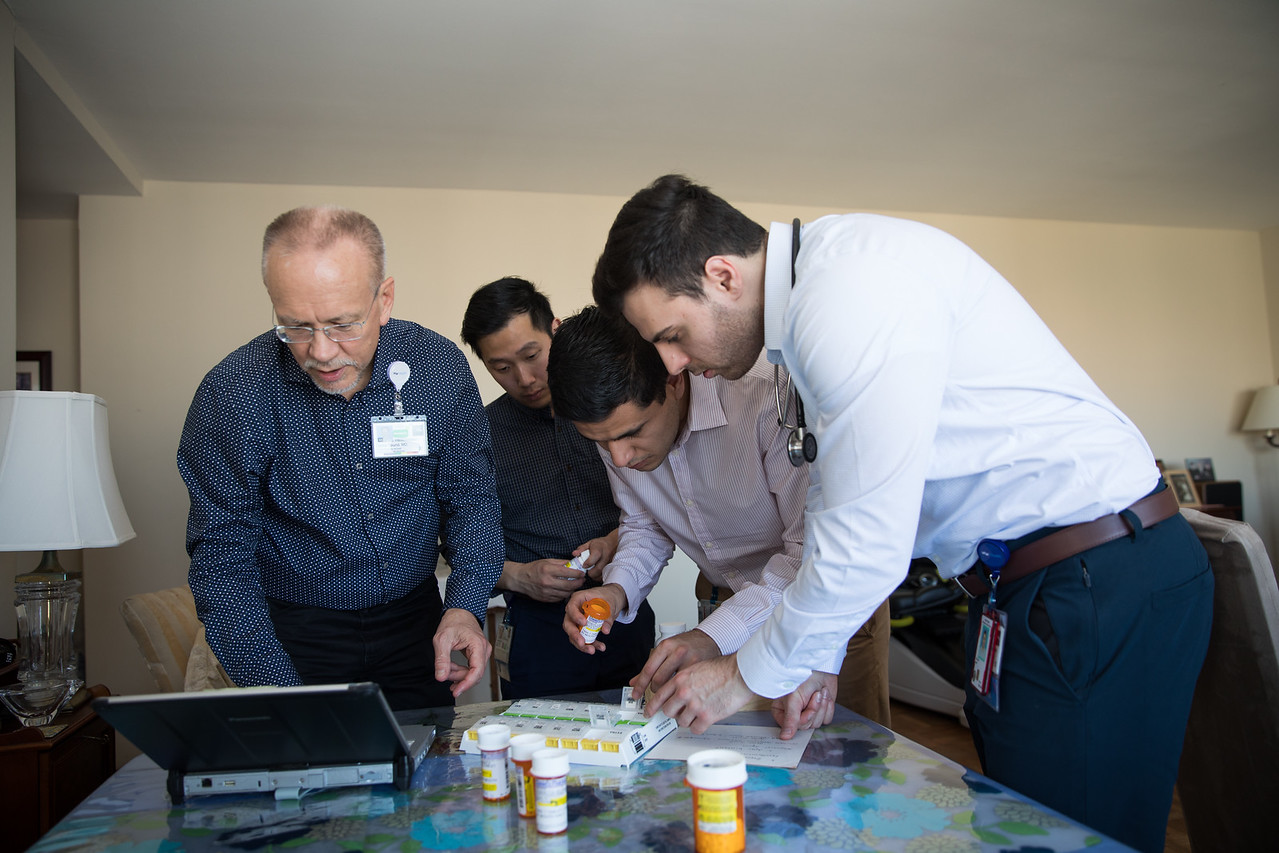
Prolific San Francisco-based composer Kirke Mechem, whose opera Tartuffe is among the most performed American operas worldwide, celebrates his 100th birthday this summer. But age hasn’t slowed him down. Mechem still swims laps at his local fitness center three times a week. He’s also mentally sharp and quick-witted. He's approaching the milestone with music, movement, and a UCSF team by his side.
If you ask Mechem about the secret to living a long life, he’ll joke about memory loss in seniors and say that he simply “forgot to die.”
Jokes aside, Mechem credits a lifetime spent as an athlete for his longevity. He played every sport as a child and eventually became a tennis pro who would one day play doubles with Billie Jean King in Golden Gate Park.
“You have to use it or lose it - physically and mentally,” said Mechem.
"Mechem is exceptional," said Dr. Daniel Pound, Mechem's UCSF geriatrician and professor in family and community medicine. "He is dispelling preconceptions about what older people are like or what they are capable of.”

While half of us will have dementia by age 85, Mechem composed his last opera at age 95. He exemplifies what research shows: that socialization, physical activity, and challenging yourself cognitively are key contributors to healthy aging, according to Dr. Pound.
Family Systems and Healthy Aging
It's no wonder that Mechem also credits his family for helping him maintain his overall health all these years when you learn about Dr. Pound's approach to geriatric care.
Dr. Pound has spent decades teaching a generation of medical students about geriatric care, emphasizing a team-based approach and home visits, including a visit to Mechem’s home. Through this curriculum, students are gaining perspectives into family-systems theory, the idea that a person's health is closely connected to their family or home life.
“We ensure that a complete picture is formed for the students of not just the patient’s medical conditions, but how their home and personal circumstances come together to impact overall health,” said Dr. Pound.

After home visits, students often reported feelings of gratitude, humility, and empathy. They also noted that ageist preconceptions about a patient’s quality of life had been disproven. This curriculum helps students see patients’ humanity – that they are more than just their disease.
It is crucial training for preparing medical students to meet the health and wellness needs of older people like Mechem. Approximately 101,000 Americans are aged 100 and older and this number is projected to more than quadruple over the next three decades, according to U.S. Census Bureau projections.

For Mechem, having a mentally, physically, and socially active lifestyle, a long and rewarding career, and a supportive care team has helped him thrive.
Mechem's story offers hope. Not only is he living longer—he’s living well.
To celebrate his centennial, Tartuffe will be performed this June by Pocket Opera in San Francisco, Berkeley, and Mountain View. It’s a fitting tribute to a man who has spent nearly a century putting his heart into music—and into life.
“I feel incredibly lucky,” Mechem reflects. “It’s very fortunate for anyone to devote their life to something they love.”
In addition to Dr. Pound, Kirke Mechem would like to thank Drs. Raphael Reider, Randolph Chase, and Dr. Katherine Bonacini DPT.




